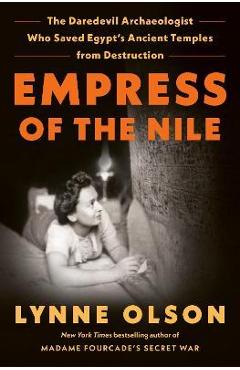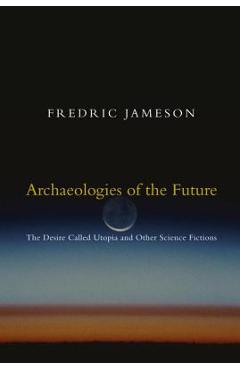Archaeologies of the Future: The Desire Called Utopia and Other Science Fictions, Paperback/Fredric Jameson

Detalii Archaeologies of the Future: The
Archaeologies of the Future: The - Disponibil la elefant.ro
Pe YEO găsești Archaeologies of the Future: The de la Verso, în categoria Foreign Books.
Indiferent de nevoile tale, Archaeologies of the Future: The Desire Called Utopia and Other Science Fictions, Paperback/Fredric Jameson din categoria Foreign Books îți poate aduce un echilibru perfect între calitate și preț, cu avantaje practice și moderne.
Preț: 201.99 Lei
Caracteristicile produsului Archaeologies of the Future: The
- Brand: Verso
- Categoria: Foreign Books
- Magazin: elefant.ro
- Ultima actualizare: 27-10-2025 01:24:43
Comandă Archaeologies of the Future: The Online, Simplu și Rapid
Prin intermediul platformei YEO, poți comanda Archaeologies of the Future: The de la elefant.ro rapid și în siguranță. Bucură-te de o experiență de cumpărături online optimizată și descoperă cele mai bune oferte actualizate constant.
Descriere magazin:
In an age of globalization characterized by the dizzying technologies of the First World, and the social disintegration of the Third, is the concept of utopia still meaningful? Archaeologies of the Future , Jameson\'s most substantial work since Postmodernism, Or, the Cultural Logic of Late Capitalism , investigates the development of this form since Thomas More, and interrogates the functions of utopian thinking in a post-Communist age. The relationship between utopia and science fiction is explored through the representations of otherness ... alien life and alien worlds ... and a study of the works of Philip K. Dick, Ursula LeGuin, William Gibson, Brian Aldiss, Kim Stanley Robinson and more. Jameson\'s essential essays, including "The Desire Called Utopia," conclude with an examination of the opposing positions on utopia and an assessment of its political value today. About the Author: Fredric Jameson is Distinguished Professor of Comparative Literature at Duke University. The author of numerous books, he has over the last three decades developed a richly nuanced vision of Western culture\'s relation to political economy. He was a recipient of the 2008 Holberg International Memorial Prize. He is the author of many books, including Postmodernism, Or, The Cultural Logic of Late Capitalism , The Cultural Turn, A Singular Modernity , The Modernist Papers , Archaeologies of the Future , Brecht and Method, Ideologies of Theory, Valences of the Dialectic , The Hegel Variations and Representing Capital.

Produse asemănătoare

The First Black Archaeologist. A Life of John Wesley Gilbert, Hardback/***
![]() elefant.ro
elefant.ro
Actualizat in 28/10/2025
241.99 Lei

Olga Tufnells \'Perfect Journey\'. Letters and Photographs of an Archaeologist in the Levant and Mediterranean, Hardback/***
![]() elefant.ro
elefant.ro
Actualizat in 28/10/2025
360.99 Lei

Empress of the Nile: The Daredevil Archaeologist Who Saved Egypt\'s Ancient Temples from Destruction - Lynne Olson
![]() libris.ro
libris.ro
Actualizat in 28/10/2025
195.84 Lei

Dinner with King Tut: How Rogue Archaeologists Are Recreating the Sights, Sounds, Smells, and Tastes of Lost Civilizations - Sam Kean
![]() libris.ro
libris.ro
Actualizat in 28/10/2025
181.35 Lei

Empress of the Nile: The Daredevil Archaeologist Who Saved Egypt\'s Ancient Temples from Destruction - Lynne Olson
![]() libris.ro
libris.ro
Actualizat in 28/10/2025
128.34 Lei

Archaeologies of the Future: The Desire Called Utopia and Other Science Fictions - Fredric Jameson
![]() libris.ro
libris.ro
Actualizat in 28/10/2025
267.54 Lei
Produse marca Verso

Contingency, Hegemony, Universality: Contemporary Dialogues on the Left, Paperback/Judith Butler
![]() elefant.ro
elefant.ro
Actualizat in 28/10/2025
86.99 Lei

Classes in Contemporary Capitalism, Paperback/Nicos Poulantzas
![]() elefant.ro
elefant.ro
Actualizat in 28/10/2025
177.99 Lei

Capitalism and the Sea: The Maritime Factor in the Making of the Modern World, Hardcover/Liam Campling
![]() elefant.ro
elefant.ro
Actualizat in 28/10/2025
144.99 Lei

The Shadow of the Mine: Coal and the End of Industrial Britain, Hardcover/Ray Hudson
![]() elefant.ro
elefant.ro
Actualizat in 28/10/2025
144.99 Lei

Critical Encounters: Capitalism, Democracy, Ideas, Hardcover/Wolfgang Streeck
![]() elefant.ro
elefant.ro
Actualizat in 28/10/2025
122.99 Lei

Decolonial Marxism: Essays from the Pan-African Revolution, Hardcover/Walter Rodney
![]() elefant.ro
elefant.ro
Actualizat in 28/10/2025
144.99 Lei